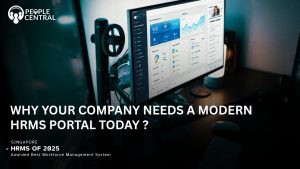Singapore, a nation renowned for its economic prowess, has also been at the forefront of ensuring fair labor practices. A cornerstone of this commitment is the Progressive Wage Model (PWM). Introduced to uplift lower-wage workers, the PWM has been steadily implemented across various sectors, with the Ministry of Manpower (MOM) playing a pivotal role in its oversight and development.
Progressive Wage Model Singapore: A basic Understanding
The PWM is a wage structure designed to increase the earnings of lower-wage workers through a combination of skills upgrading and productivity improvements. Essentially, it outlines a clear career pathway where wages rise in tandem with increased skills and job responsibilities. This model not only benefits workers by providing a tangible path to higher earnings but also drives productivity gains for businesses.
Progressive Wage Model Singapore: Key Components
- Wage Ladders: The PWM establishes clear wage levels based on job roles and skill sets. As workers acquire new skills and take on more responsibilities, their wages progressively increase.
- Skills Training: To support wage growth, the PWM emphasizes skills development. Workers receive training opportunities to enhance their capabilities, enabling them to move up the wage ladder.
- Productivity Improvements: The model encourages businesses to invest in technology and process improvements to enhance productivity. This, in turn, allows for higher wages without compromising profitability.
Progressive Wage Model Singapore in 2024: Expanding Horizons
The year 2024 marks a crucial juncture for the PWM as it continues to expand its reach and deepen its impact.
- Sectoral Expansion: One of the key developments in 2024 is the PWM’s extension to new sectors. The MOM has been actively identifying industries with a significant concentration of lower-wage workers to bring them under the PWM umbrella. This expansion ensures that a larger segment of the workforce benefits from the model.
- Enhanced Skills Framework: Recognizing the pivotal role of skills in wage progression, the MOM has been working to strengthen the skills framework under the PWM. This includes developing more targeted training programs, improving access to training opportunities, and enhancing the recognition of skills acquired through on-the-job learning.
- Technology Integration: To boost productivity and support wage growth, the PWM is increasingly emphasizing the adoption of technology. The MOM is providing incentives and support to businesses to invest in automation and digitalization. This not only helps to enhance job roles but also creates new opportunities for workers.
- Strengthening Enforcement: Ensuring compliance with the PWM is paramount. The MOM has intensified its enforcement efforts to deter non-compliance and protect the rights of workers. This includes conducting regular inspections, imposing stricter penalties for violations, and providing clear guidelines to businesses.
MOM’s Stewardship in 2024
The Ministry of Manpower (MOM) continues to be the driving force behind the PWM’s implementation and refinement.
- Expanding PWM Coverage: In 2024, MOM is focused on broadening the PWM’s reach to encompass more sectors. Industries with a high concentration of lower-wage workers are being prioritized for inclusion.
- Strengthening Skills Framework: MOM recognizes the pivotal role of skills in wage progression. Efforts are underway to enhance the skills framework by developing more targeted training programs, improving accessibility, and recognizing skills acquired through on-the-job learning.
- Technology Adoption: To boost productivity and support wage growth, MOM is encouraging businesses to adopt technology. Incentives and support are being provided to facilitate automation and digitalization.
- Robust Enforcement: Ensuring compliance with the PWM is a top priority for MOM. The ministry has intensified enforcement measures, including regular inspections, stricter penalties, and clear guidelines for businesses.
- Worker Support and Assistance: MOM is committed to supporting workers as they navigate the PWM. This includes providing career guidance, job placement services, and financial assistance for training.
Progressive Wage Model Singapore and its Impact in 2024
The PWM’s positive impact is becoming increasingly evident. Studies indicate that the model has led to wage growth, improved job satisfaction, and reduced income inequality. Businesses that have embraced the PWM have reported productivity gains, better employee retention, and enhanced corporate social responsibility.
Progressive Wage Model Singapore | Challenges and Future Outlook
Despite its successes, the PWM faces challenges. Ensuring the sustainability of wage increases, addressing the skills mismatch, and balancing the interests of workers and businesses remain key areas of focus.
MOM is committed to addressing these challenges and adapting the PWM to the evolving economic landscape. By working closely with industry stakeholders and workers, the ministry aims to create a more equitable and prosperous Singapore.
Suggested Read: PSG Grants, Your All-In-One Guide








 5
5


























